Crowds have flocked to Belgium to celebrate the 200th anniversary of the Battle of Waterloo.
Officials from all parts of Europe came together in a show of European unity, something that has not happened for a major anniversary at the site since history changed course there on 18 June 1815.
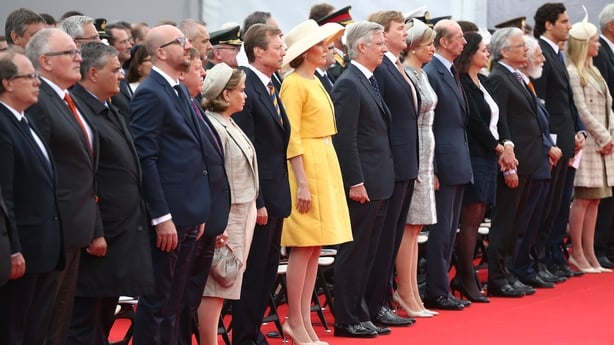
Around 40,000 men were killed or wounded in the battle that brought about peace in Europe.
Nearly 180,000 men fought for more than 10 hours, with more than 35,000 horses and some 500 cannons on the two sides.
Days of official ceremony, a music-and-fireworks spectacular and re-enactments of the battle that ended Napoleon's French domination of Europe are taking place over the course of the week.
Some 5,000 enthusiasts took part in a re-enactment of the battle, while more than 10,000 are expected to attend a light-and-sound show tonight.
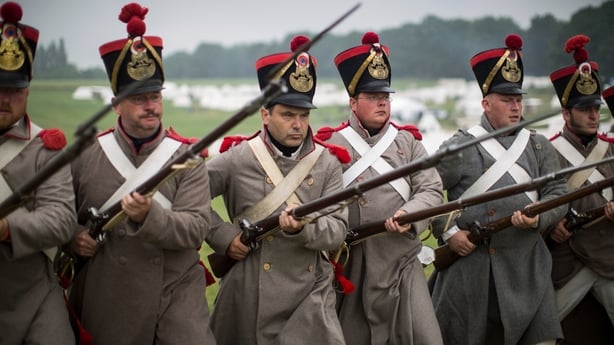
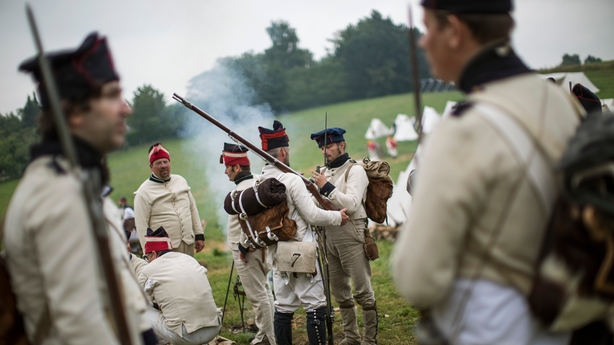
The battle’s bicentenary has renewed debate and sparked academic reassessment over the conflict and its meaning for Europe today.
At the battle site, which is 20km south of the European Union headquarters in Brussels, descendants of the Irish, British, Dutch, Belgian, German and French combatants gathered alongside state representatives.
It is a contrast to the 1915 centenary, which took place under World War One German occupation, but also to 1965, when French officials boycotted British events for the 150th anniversary.
France sent its ambassador to a ceremony today, along with the monarchs of Belgium and the Netherlands.
Britain’s Queen Elizabeth was represented by her cousin the Duke of Kent, and senior officials from the EU were also present.
"Remembering sacrifices made is only the start," said the British ambassador to Belgium, Alison Rose.
"We must put at least as much effort into making a difference today - in promoting respect, justice and reconciliation," she said.
Germany sent an official to represent the Germans who fought for Britain's Hanoverian King and in Marshal Bluecher's Prussian army in the battle.
Their arrival is said to have saved the day for the Duke of Wellington and his Dutch allies.
Major General Evelyn Webb-Carter, an organiser of British bicentenary events, said Waterloo not only ushered in an age of British prosperity, but that "its consequence was the building of the Europe that we know and recognise today".
Taoiseach Enda Kenny joined British Prime Minister David Cameron at the City of London’s Guildhall for a commemorative banquet last night.
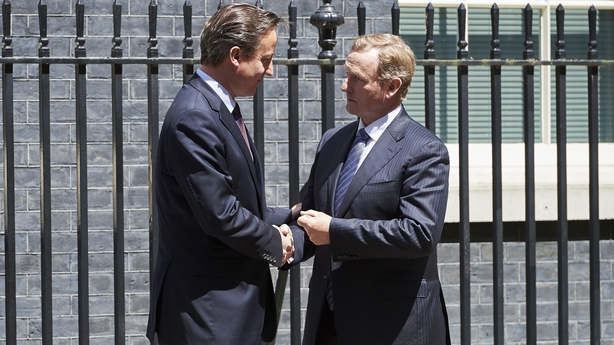
An estimated 8,500 Irish soldiers fought in the Battle of Waterloo, of which approximately 2,000 lost their lives.
In the UK, a memorial service was held in St Paul’s Cathedral in London.
The service was attended by Mr Cameron as well as Prince Charles, his wife Camilla and other members of the royal family.
Representatives from the armed forces also attended the service.
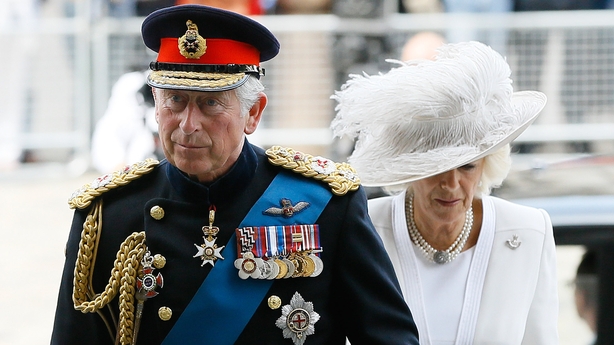
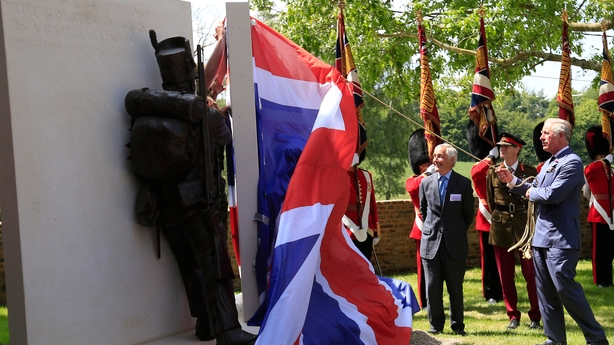
The prince unveiled a new piece of artwork at Hougoumont Farm to mark the bicentenary of the battle yesterday.
The farm is where British and allied forces successfully held off Napoleon's army during the Battle of Waterloo in 1815
David Bell, a historian of France at Princeton University said the importance of the battle itself was "often overstated".
He said Napoleon, exiled the previous year, could not have regained his hegemony, although he might have made the 19th century a less stable one if he had won.
For locals in the Brussels commuter belt, the anniversary is about tourism.
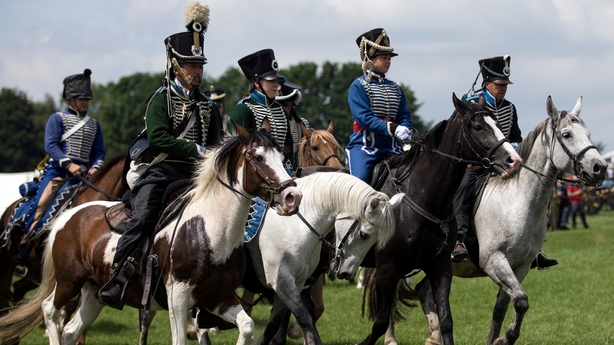
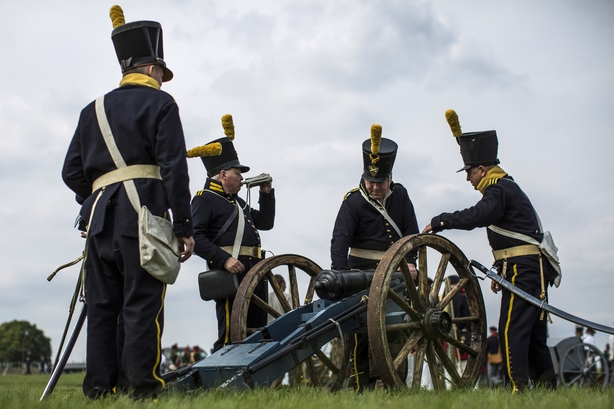
They expect 200,000 tourists to come to Waterloo this week, where they can see bicorn hats that belonged to the Duke of Wellington and Napoleon at a new visitor centre.
"Of course, for us it was a defeat but this is bringing people together. It's a history we all share, and close to Brussels, where now we're trying to work together in Europe," French tourist Marylin Jacquin said on a recent visit to the battlefield.
Christine Dabbs was one of hundreds who answered calls to share their family stories, and recently visited Hougoumont farm where her ancestor Private Matthew Clay defended.
"I felt a very close personal connection," she said.
Ms Dabbs will return to Waterloo later in the week after a memorial at London's St. Paul's Cathedral with the current Duke of Wellington.
There is less enthusiasm for the anniversary among the French.
"The French have a problem with their history, a permanent discomfort," explained Napoleon biographer Patrice Gueniffey in the newspaper Le Monde. "There's no consensus ... They fail to face up to their past, something the British have no problem with."
Paris used its rights in the EU currency system to block Belgium from issuing a commemorative euro coin for the battle, only to be outflanked when the Brussels issued Waterloo coins as souvenirs last week.
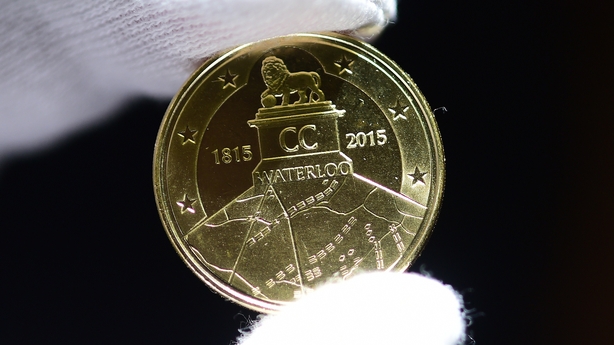
Germans are taking a more positive view, with some British historians suggesting that Germany should be given as much credit for the victory as the UK.
"If anniversaries help people better understand the idea of Europe, that's great," argued Kurt Kister, editor of Munich's Sueddeutsche Zeitung.
"Despite the euro crisis, the far-right and EU-fatigue, the old continent is in a better, more peaceful state than ever. It's a while since French, Germans and English have shot each other," he said.

